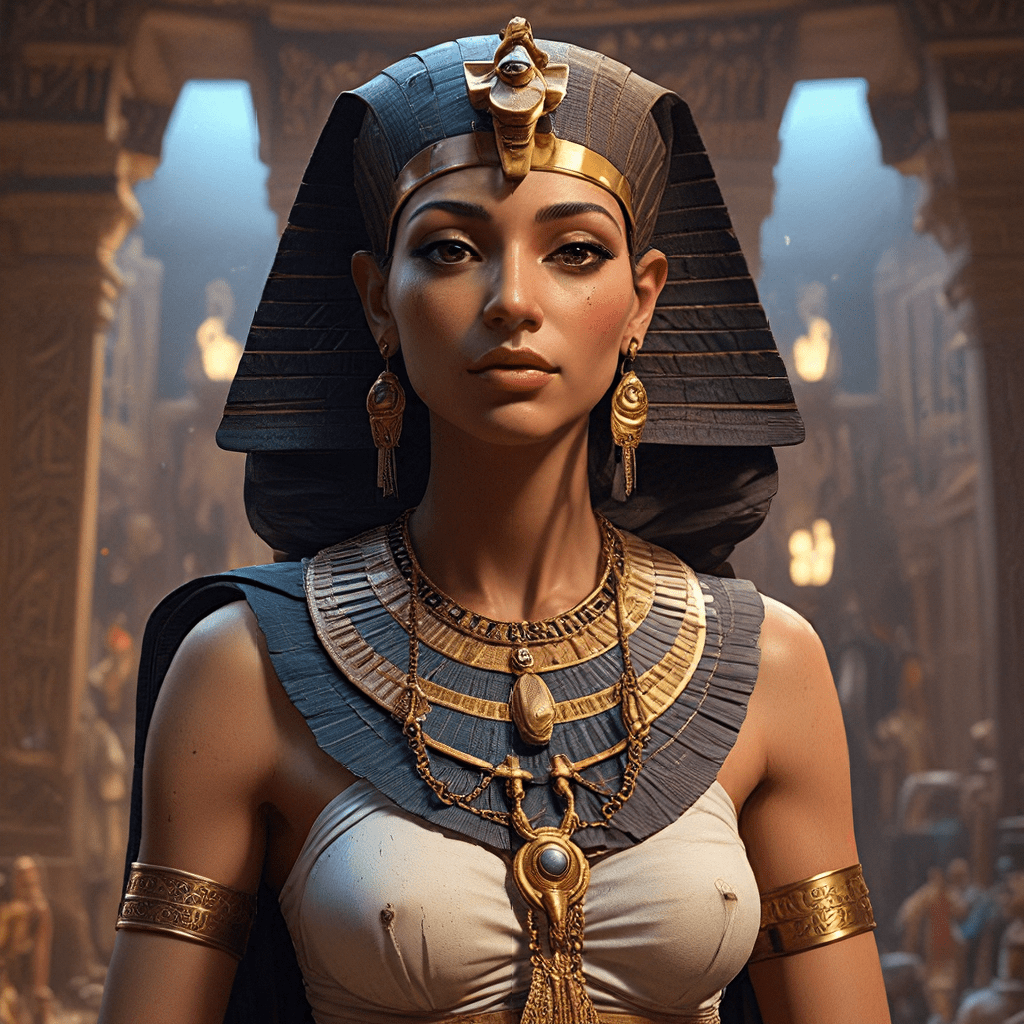The Weighing of the Heart: A Guide to the Egyptian Afterlife Morality
1. Introduction: The Concept of the Afterlife in Ancient Egypt
Ancient Egyptians deeply believed in an afterlife, a continuation of life beyond the physical realm. This belief shaped their culture, influencing everything from their daily rituals to their impressive tomb construction. The focus on the afterlife was tied to the concept of *Maat*, a fundamental principle of truth, justice, and cosmic order. *Maat* represented balance and harmony, both in the physical world and in the spiritual realm.
The Egyptians believed that preserving the body through mummification would allow the soul, or *ka*, to rejoin the body in the afterlife. They envisioned a life after death filled with abundance, happiness, and immortality, a paradise they called the *Field of Reeds*. However, reaching this paradise was not automatic. It required a journey through the underworld and a final judgment, a sacred ceremony known as the Weighing of the Heart.
2. The Journey to the Afterlife: Death and Beyond
After death, the Egyptians went through a complex process of embalming and preparation. The deceased’s body was carefully preserved, often with elaborate funerary masks and amulets. The heart was believed to be the seat of the soul, and its preservation was crucial for the journey to the afterlife. The body was then laid to rest in a tomb, often accompanied by treasures and offerings for the deceased’s journey.
The *Book of the Dead* was a collection of spells and incantations intended to guide the deceased through their journey. This sacred text, written on papyrus scrolls, provided instructions for navigating the underworld, overcoming obstacles, and successfully navigating the final judgment.
3. The Hall of Two Truths and the Weighing of the Heart
The heart of the deceased faced its final judgment in the *Hall of Two Truths*, a sacred court in the underworld where Osiris, the god of the underworld, presided. This was a pivotal moment in the afterlife journey. Here, the deceased’s soul was weighed against the *Feather of Ma’at*, a symbol of truth and purity, held by the god Thoth, the god of wisdom and knowledge.
Anubis, the jackal-headed god of mummification and the afterlife, conducted the weighing ceremony. He would guide the deceased’s soul to the scales and record its weight. The weight of the heart was a reflection of the person’s morality and actions during their lifetime.
4. The Scales of Justice: Weighing the Heart Against the Feather of Maat
The scales of justice represented the balance between good and evil, between truth and falsehood. The feather of *Maat* embodied the ideal of a righteous and moral life. If the heart was lighter than the feather, it signified a good life, free from sin and filled with acts of kindness, truthfulness, and justice.
The Egyptians believed that a heart burdened with evil deeds would be heavy and fall short of the feather’s weight. A light heart was seen as the ultimate currency for entering the afterlife, a testament to a life lived in accordance with *Maat*.
5. The Consequences of the Weighing: Judgment and Destiny
The outcome of the weighing ceremony determined the deceased’s ultimate destiny. If the heart was found to be lighter than the feather, the deceased was granted passage into the *Field of Reeds*, a paradise where they could enjoy eternal life, happiness, and abundance.
However, if the heart was heavier than the feather, the soul faced a dire fate. The deceased was devoured by the *Ammit*, a fearsome monster with the head of a crocodile, the body of a lion, and the hindquarters of a hippopotamus. This symbolized the ultimate punishment for a life filled with cruelty, deceit, and injustice.
6. The Role of Confession and Recitation: Proving Innocence
To ensure a favorable outcome, the deceased had to prove their innocence by confessing their sins and reciting negative confessions. The *Book of the Dead* provided a series of pronouncements that the deceased had to recite, assuring the gods that they had not committed certain sins. These confessions were not mere expressions of guilt but a reflection of the heart’s journey towards purity and truth.
This ritual emphasized self-reflection and the acknowledgement of wrongdoing. By confessing their sins and demonstrating a desire for redemption, the deceased could cleanse their hearts and prepare for the weighing of the soul.
7. The Concept of Morality in Ancient Egypt: Maat as the Guiding Principle
*Maat* was the guiding principle for ethical behavior in ancient Egypt. It encompassed a broad range of values, including:
– **Truthfulness:** Speaking the truth and avoiding deceit.
– **Justice:** Upholding fairness in all situations.
– **Harming:** Avoiding violence and cruelty.
– **Moderation:** Practicing moderation in all things.
– **Order:** Maintaining balance and harmony in the world.
*Maat* shaped Egyptian society in many ways, influencing their laws, social interactions, and even their artistic expressions. The pursuit of *Maat* extended beyond the earthly realm, guiding individuals towards a virtuous life that would lead to a successful afterlife.
8. The Weighing of the Heart and Its Impact on Egyptian Society
The Weighing of the Heart was a powerful symbol that profoundly influenced Egyptian society. It instilled in individuals a strong sense of responsibility and a desire to live a virtuous life in accordance with *Maat*. The fear of divine judgment and the consequences of a heavy heart encouraged moral behavior and fostered a sense of community.
The rituals and beliefs surrounding the afterlife provided a framework for understanding right and wrong, and reinforced the importance of living a meaningful life. The concept of *Maat* and the Weighing of the Heart served as a reminder for the Egyptians to strive for harmony, justice, and truth, not only in this life but in the afterlife as well.




